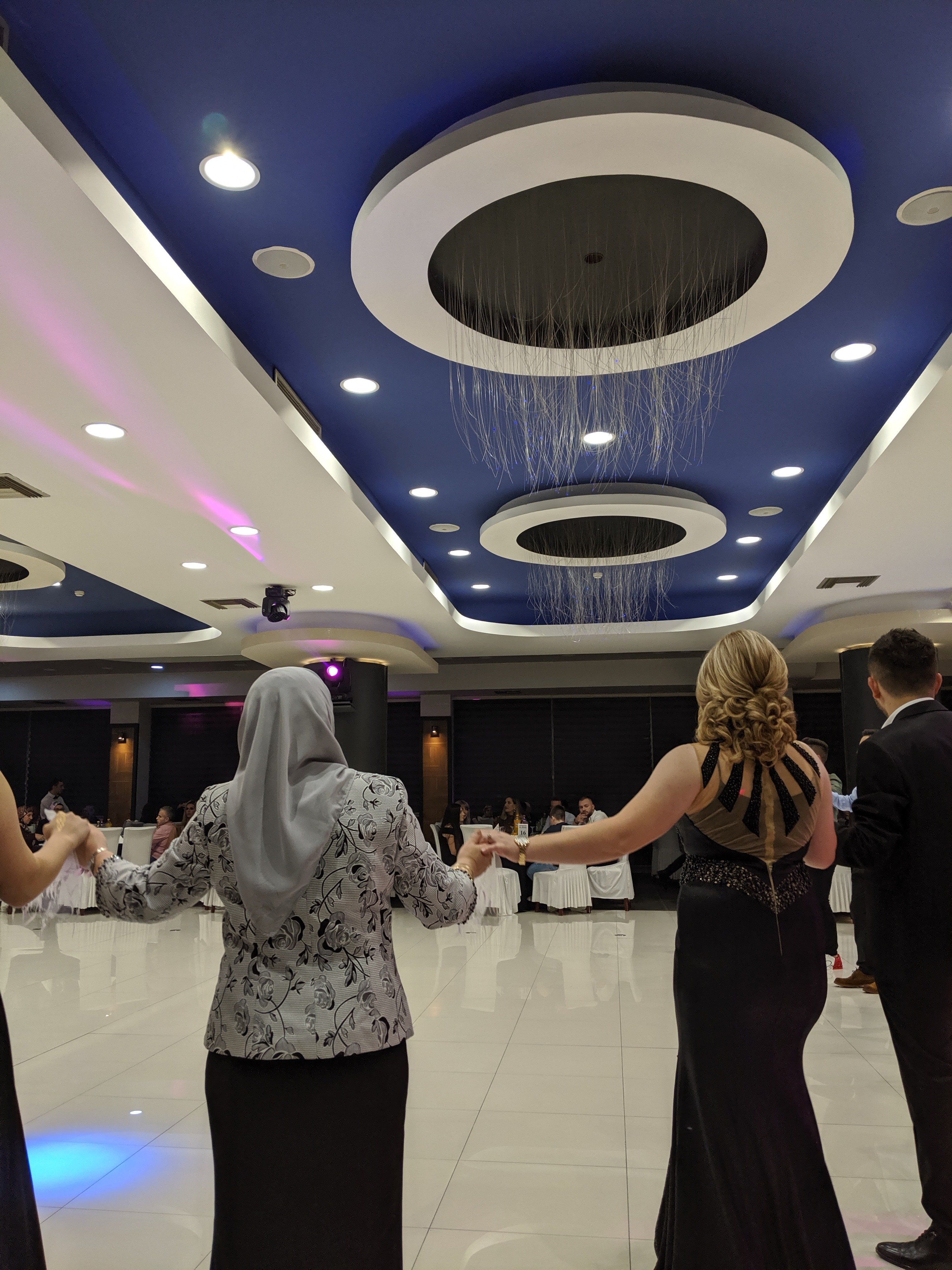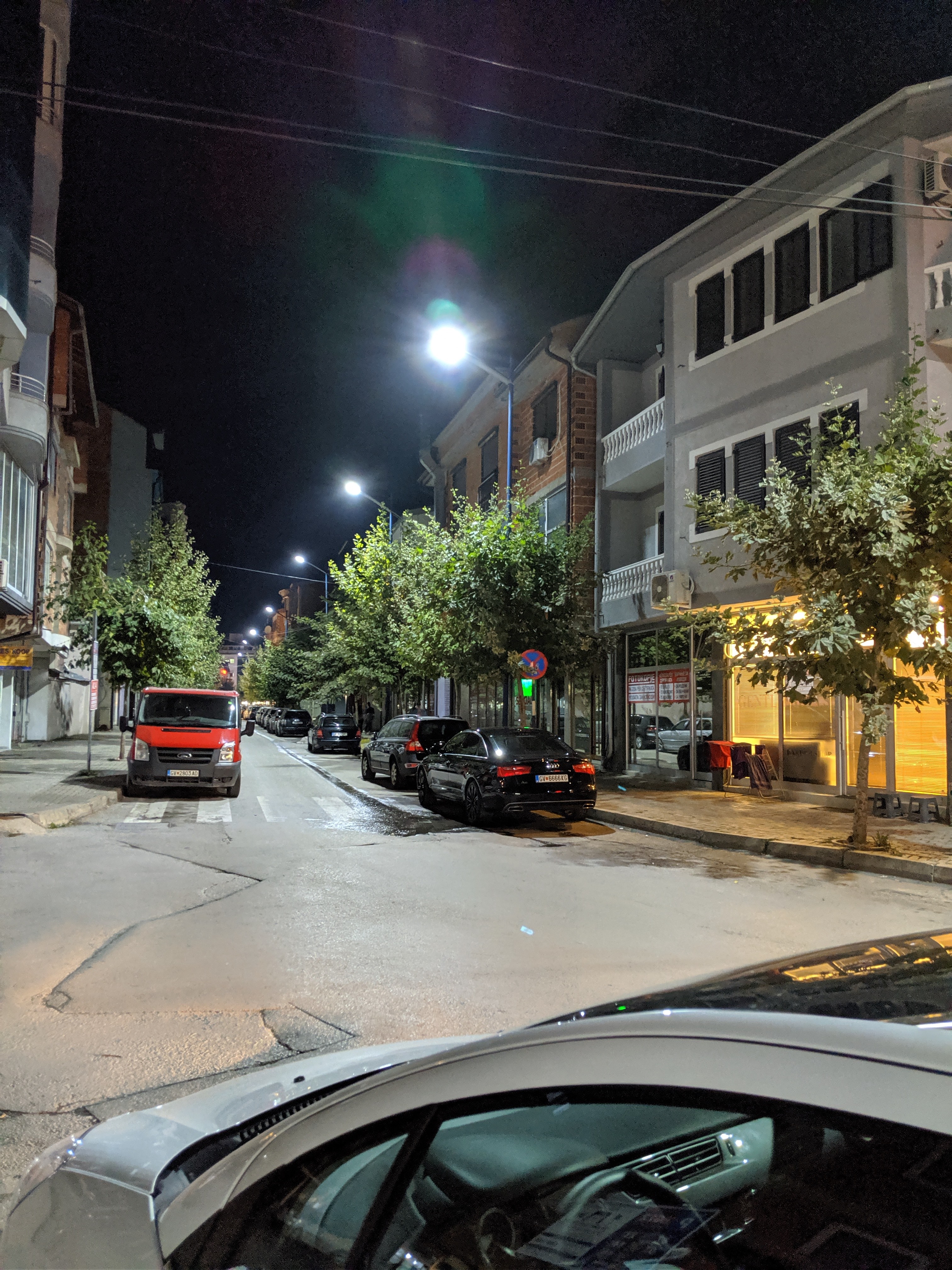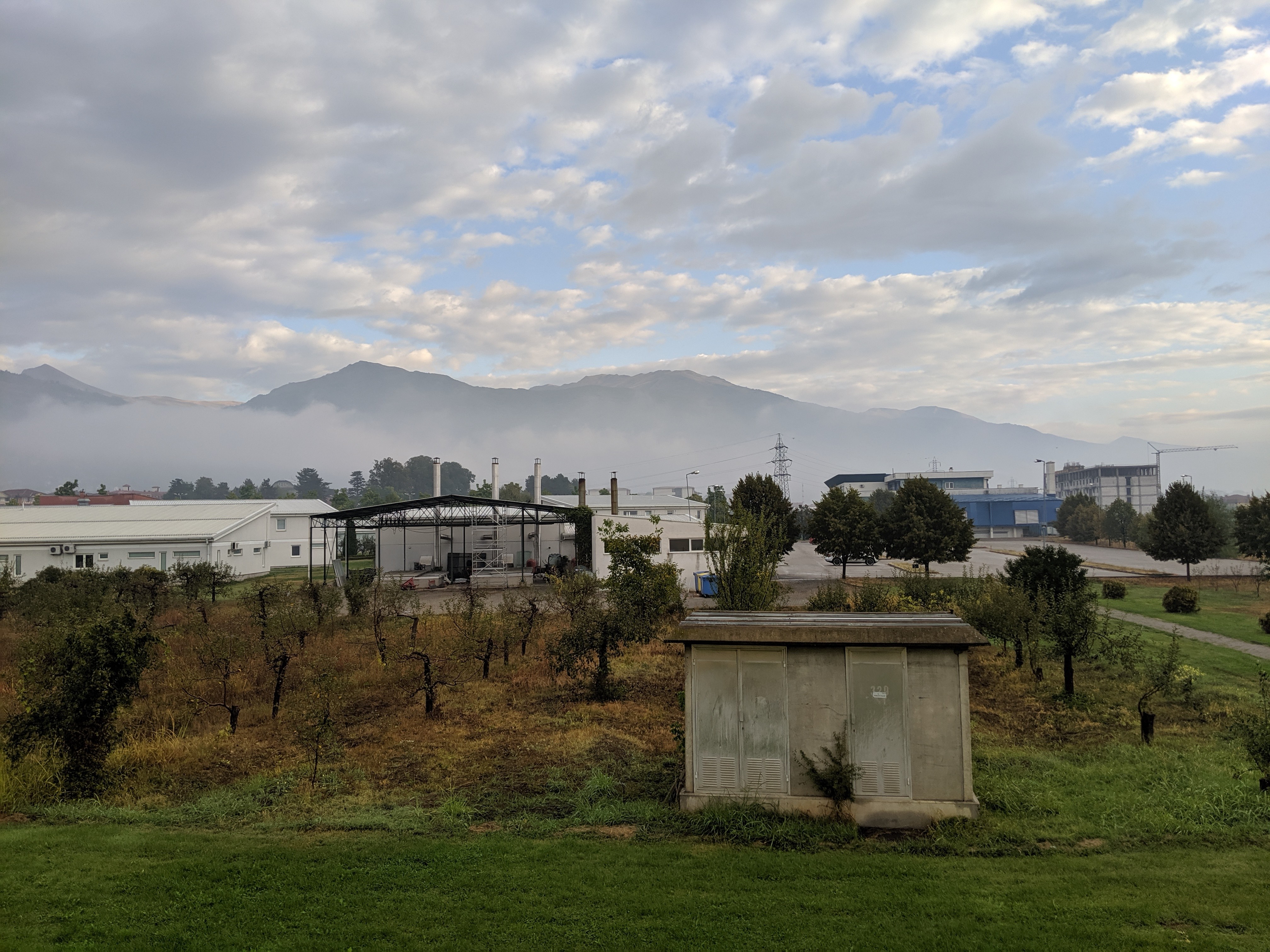
What happens when you are a guest in someone’s home? What do they do for you? What are YOU expected to do? These are questions that one usually gives little thought to. Here in N Macedonia, there is a ritual to having guests over. In Macedonian, it’s На гости, and in Albanian it’s mysafiri. There are two different connotations to these words, but the concept is the same: you are visiting someone’s house, and you are their guest. In Macedonian, it’s to be a guest, and in Albanian, it’s to be somewhere else (assuming that you’ll be a guest there).
I have been guesting in quite a few households, both Macedonian and Albanian, since I’ve been here. The rituals are obviously different, but the feeling is the same: you must be taken care of as a guest. I visited a fellow trainee’s flat, where she lives with a busy Macedonian family. As soon as I arrived, I was given something to drink and then piles of snacks came to the table: grapes and apples, nuts and sweets. The table was pushed closer so we didn’t have to reach far. If we didn’t eat a lot, we were fussed over. I admit, I will eat all the cashews you put in front of me.
In the Albanian families, there is a set ritual, it seems. First, the tiny cups of very strong Turkish style coffee (I skip this step). Then the snacks come out. There are salty and savoury snacks, and you must eat at least a couple. The cold drinks usually come out at this step as well. There are multiple plates of the same types of snacks so nobody has to reach over anyone else. There is always soda, along with juice and water. There is also then the Turkish tea step. Turkish (or Russian) tea is brewed in a double broiler teapot: boiling water on bottom and the tea on top. The tea is brewed very strongly and then poured into a small glass that has sugar at the bottom; the boiling water is poured in to dilute it. Trust me, it needs to be diluted.

Honestly, this step is my favourite because there’s a thin slice of chocolate cake that follows. I don’t usually like chocolate cake, but this is more like a mousse. I have had it multiple times.
Of course, I, not being from this culture, usually make some gaffes. I help clear cups or try and help being coffee in, especially if, as happened recently, we are having guests where I’m living. But of course, being a guest is a very special thing. It’s the bonding that is the most important thing in a На гости or a mysafiri. It’s best to just be the guest, and enjoy the company. You’ll be there for a while, anyway.







